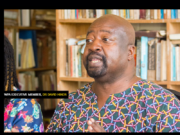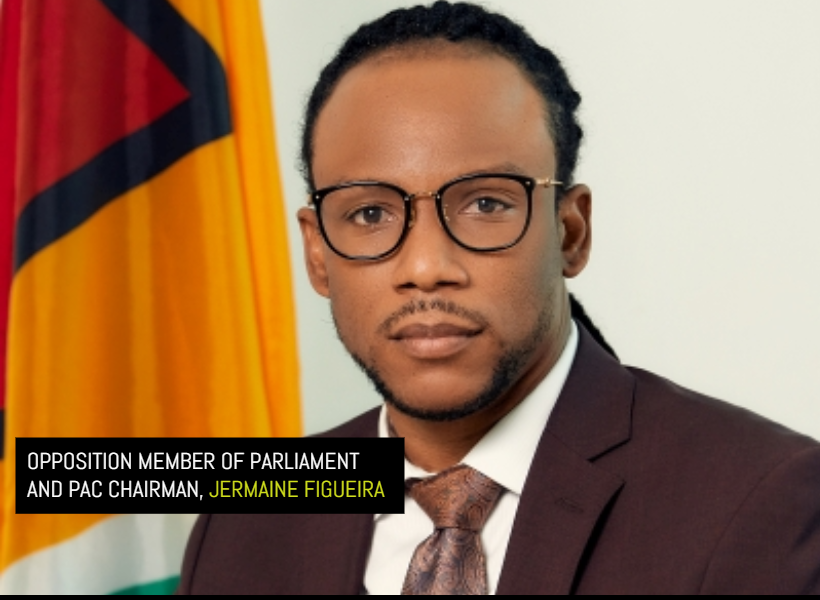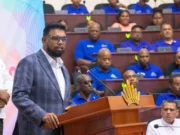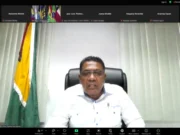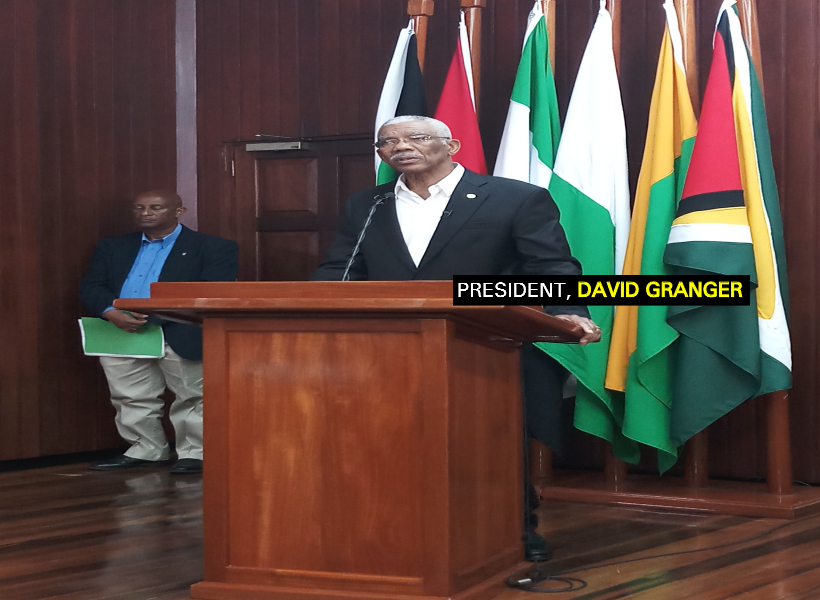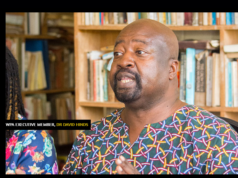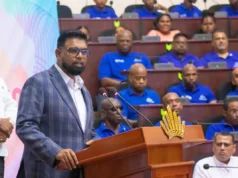resident David Granger earlier today, called on the Council of Legal Education (CLE) to find new ways to improve the delivery of affordable legal education across the Region.
The Head-of-State made this remark at the 50th Meeting of the Council of Legal Education which was held at the Marriott Hotel, Kingston, Georgetown.
Granger said that Guyana’s need for a greater number of trained legal practitioners cannot be satisfied by the present quotas imposed on the nation’s students by regional law schools. He said that the country now looks to the Council of Legal Education to facilitate the education of more specialized legal practitioners in the Caribbean.
On this note, he reminded that Guyana is in the process of establishing its own law school to meet the demands not only of Guyanese law students but that of the Region. The school, which will be named the Joseph Oscar Fitzclarence Haynes (J.O.F) Law School, will be located at the University of Guyana (UG). CLE is helping to facilitate this process.
Further to this, Granger said, “Legal education programmes should aim at producing attorneys of integrity, intelligence, and impartiality. These programmes should inculcate the virtues of public service and the values of social responsibility. Legal education should satisfy the need for qualified and competent legal practitioners to meet the demands of changing societies.”
He reminded the gathering that legal education is needed to ensure an adequate number of legal professionals can provide legal services throughout the State; promote access to justice; populate the legal systems with lawyers, jurists, and specialized legal practitioners; as well as preparing future practitioners to preserve the rule of law.
Additionally, the President stressed the need for there to be access to justice across the Region. He said that Guyana more than any other Caribbean country needs to reduce the impact of geographical impediments on accessing justice.
“Guyana is the largest State in the Caribbean Community and cannot ignore the spatial dimension of extending the reach of legal services and of expanding access to justice,” the President said, adding that legal aid programmes have been introduced to communities that were previously underserved by legal services.
“Legal aid services will become regionalized,” the Head of State said, noting that the Support for the Criminal Justice System Programme will soon facilitate the provision of legal aid services to some hinterland communities.
Moreover, the President noted that access to the courts here is being enhanced with the establishment of new magisterial districts and specialized courts. He reminded that the Upper Demerara River Magisterial District Court and the Rupununi Magisterial District Court Office were commissioned over the past year.
“The establishment of these districts removes or reduces the need for residents to travel outside of their home regions to access legal services. The judiciary has announced plans to establish municipal and children/youth courts. A family court is functioning and started to hear cases on May 6, 2016,” President Granger said.
